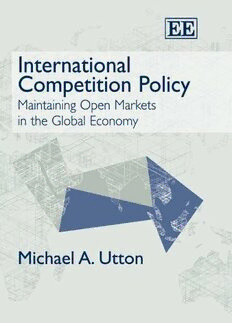
International Competition Policy: Maintaining Open Markets in the Global Economy PDF
151 Pages·2006·0.978 MB·English
Most books are stored in the elastic cloud where traffic is expensive. For this reason, we have a limit on daily download.
Preview International Competition Policy: Maintaining Open Markets in the Global Economy
Description:
The opening up of world markets, rapid growth of trade and foreign direct investment create manifold problems for competition policy. Thus, international mergers may have adverse effects on many countries, international cartels may carve up world markets and dominant firms may seek to maintain their global position by exclusionary conduct. These problems have been recognized for more than half a century and some attempts have been made internationally to address them, so far with limited success. This progressive new book seeks to explore the problems and concerns that globalization has created for competition policy. The book begins by setting out the principles of competition and trade policies, and then goes on to address the impact of market globalization on what are usually thought of as traditional antitrust concerns. These include the analysis of the difficulties arising from collusion and other restrictive practices, government sponsored вЂvoluntary co-operation’, vertical restrictions and market access, pricing strategies of dominant firms and international mergers, all illustrated with a number of prominent case studies. The author concludes with an illuminating discussion on the feasibility of international co-operation on competition policy, the faltering progress that has been made so far and the prospects for future advances. This comprehensive volume will prove to be an invaluable resource to students and scholars of law and economics. It will also find wide appeal amongst researchers, policy makers and practitioners with an interest in industrial organization, anti-trust policy and globalization.
See more
The list of books you might like
Most books are stored in the elastic cloud where traffic is expensive. For this reason, we have a limit on daily download.
